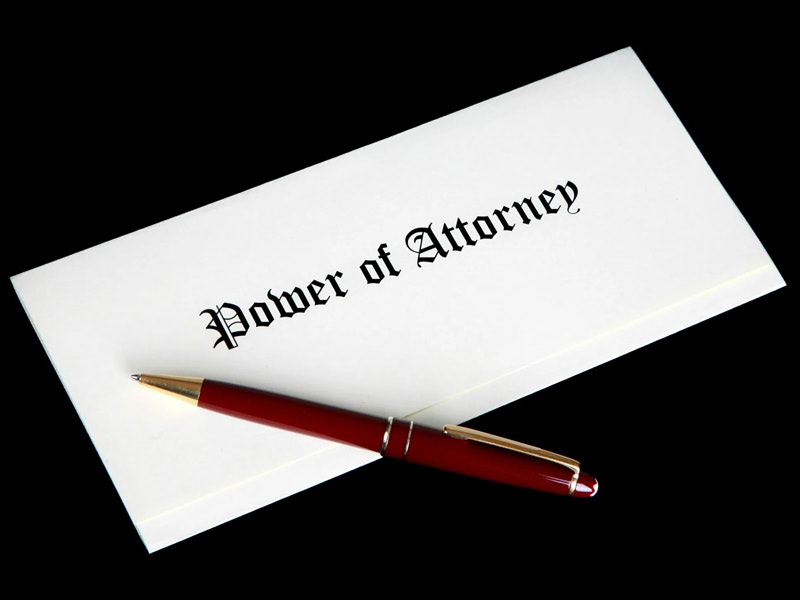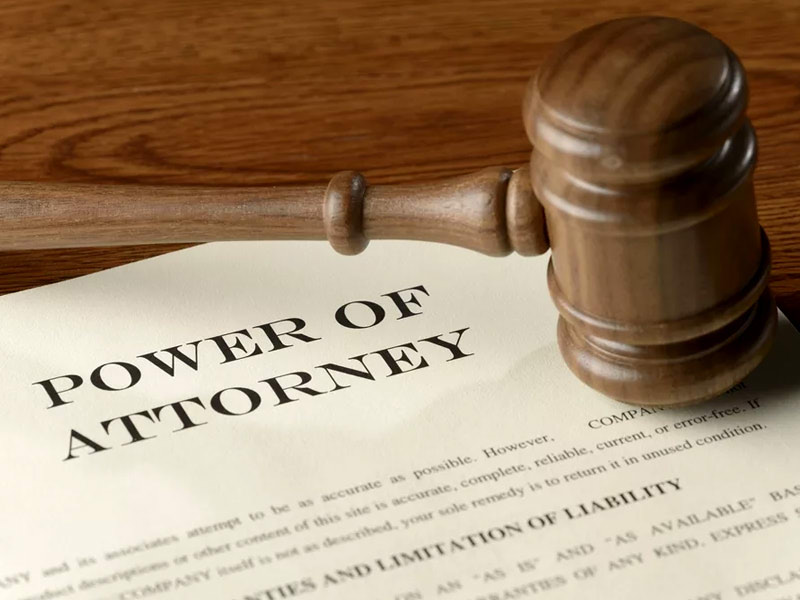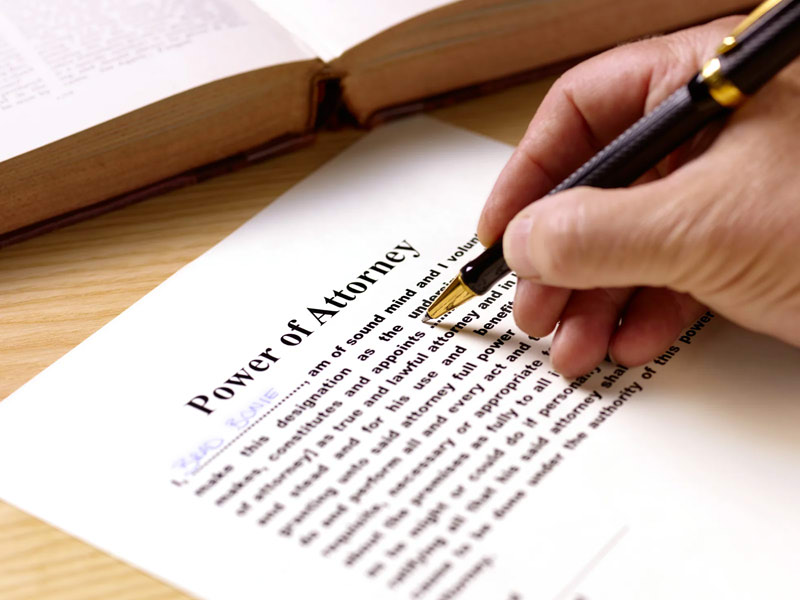Table of content
- What are the Different Types of Power of Attorney in Queensland?
- What is a General Power of Attorney?
- What is an Enduring Power of Attorney?
- How to Create a Power of Attorney in Queensland
- Do I Need to Have a Lawyer Prepare my Power of Attorney?
- What if I am Unable to Make Financial Decisions But Haven’t Created an Enduring Power of Attorney?
- What Are the Duties of an Attorney When Representing Me?
- Can I Change or Cancel My Power of Attorney?
- How have the laws regarding QLD powers of attorney changed in 2020?
- How Much Does a Power of Attorney Cost in Queensland?
What does a power of attorney do? How much does a power of attorney cost in QLD? Where can you find the latest information on Queensland power of attorney laws? Here is a detailed guide about a Power of Attorney in Queensland.

What are the Different Types of Power of Attorney in Queensland?
In Queensland, two types of powers of attorney exist. A general power of attorney comes into effect while you still possess decision-making capacity, whereas an enduring power of attorney is only applicable if you lose that capacity.
Similar documents are found in other states and territories, though they may go by different names and entail different regulations.
Additionally, you can create an Advanced Health Directive to outline your preferences regarding medical decisions during periods when you cannot make those choices yourself. This directive focuses on your desired medical treatments. Further details about this option are available below.

What is a General Power of Attorney?
A General Power of Attorney is a legal document that grants someone the authority to make decisions on your behalf when you are unable to do so yourself. It can be employed in various situations, such as when you are unable to travel, are a minor, or become incapacitated.
To establish a General Power of Attorney, several key points should be considered. Initially, you must gather all the necessary supporting documents, including copies of your identification, proof of residence, and any other records validating your identity and authorization. Once you have this documentation, you can initiate the process by completing an “Application for Grant of General Power of Attorney” form. This application must be submitted to the relevant government office, and it may take some time to process.
Upon approval of your application, you must furnish documentation confirming that you have granted the power of attorney to your chosen individual. This verification can include letters from your doctor or lawyer attesting to your incapacity or inability to make decisions, as well as copies of vital documents or affidavits.
Once again, a general power of attorney is only operational while you retain the capacity to make your own decisions and is restricted to financial matters. It becomes void if you lose decision-making capacity, making it unsuitable for future planning purposes.

What is an Enduring Power of Attorney?
An enduring power of attorney empowers you to designate someone to manage financial decisions and/or personal and health matters on your behalf when you are unable to do so. It’s important to note that you can only create an enduring power of attorney while you still possess the capacity to make your own decisions.
Within an enduring power of attorney, you have the option to express your “views, wishes, and preferences,” which your appointed attorney must adhere to when making decisions for you after you’ve lost capacity.
An attorney responsible for personal and health matters can only make decisions on your behalf when you lack the capacity to do so yourself.
However, you have the flexibility to specify when your attorney’s authority to make financial decisions comes into effect, including:
- When you are unable to make financial decisions (meaning your attorney can only act during these periods of incapacity).
- Immediately (allowing your attorney to make decisions regarding all your financial and property affairs as soon as they accept the role, even while you have capacity).
- On a specific date.
- In particular circumstances or situations (such as during hospitalization, while traveling abroad, or upon certification of incapacity by two medical specialists).
EPA can be established by individuals over the age of 18 who possess full legal capacity.
EPA cannot be established on behalf of an individual whose mental capacity is uncertain due to conditions such as mental illness, acquired brain injury, cognitive impairment, or dementia by another person.
It’s important to understand that creating EPA with immediate effect does not relinquish your ability to make decisions regarding your property and finances.
To cancel or revoke an EPA, the person who established it must have full legal capacity and must make the revocation in writing. If the person has lost capacity, an application can be submitted to the Tribunal to determine whether the EPA should be canceled.

How to Create a Power of Attorney in Queensland
In Queensland, the process of establishing powers of attorney involves completing an officially approved form.
Do I Need to Have a Lawyer Prepare my Power of Attorney?
While it’s not mandatory to have a lawyer prepare your power of attorney documents, we recommend it to ensure that the documents are completed correctly and are properly witnessed. Witnesses can include a Justice of the Peace, a Commissioner for Declarations, a notary public, or a lawyer.
What if I am Unable to Make Financial Decisions But Haven’t Created an Enduring Power of Attorney?
In such a scenario, it’s likely that someone will need to initiate a court or tribunal application to appoint a financial manager to handle your affairs. This process can be both costly and time-consuming.
To avoid this situation, it’s advisable to proactively appoint someone while you are still capable of doing so by creating an enduring power of attorney.

What Are the Duties of an Attorney When Representing Me?
Under Queensland law, an attorney must act in your best interests, taking into consideration your wishes and preferences. They are required to maintain comprehensive records of transactions and decisions while keeping your finances distinct from their own.
In each decision-making process, your attorney must give due regard to “your views, wishes, and preferences” and, whenever possible, collaborate with you to determine these preferences. They should facilitate your participation in decision-making to the greatest extent possible.
In Queensland, you have the option to impose limitations, conditions, or obligations on the decision-making authority of your attorney. These constraints are referred to as “terms and instructions” or “notifications.” For instance, you can stipulate that they submit annual accounts to a designated accountant.
Furthermore, an attorney must avoid “conflicts of interest,” which can arise when they, their relatives, friends, or business associates have competing interests in a particular transaction. More information on this is available below.
There are also specific regulations governing financial attorneys concerning:
- Gifts and donations
- Conflict transactions
- Investments
- Supporting the principal’s dependents
- Record-keeping
- Maintaining separate property

Can I Change or Cancel My Power of Attorney?
You possess the right to modify or annul a general power of attorney at your discretion. If you have formally registered your power of attorney, the procedure involves completing a revocation form and informing Titles Queensland accordingly. Additionally, it is recommended to notify your attorney, preferably in writing, to create a documented record of your decision. GM Law can assist with every aspect of this process.
However, you can only alter or revoke an enduring power of attorney if you still possess the capacity to make your own decisions. If you have lost capacity, an individual with an interest in your well-being will need to apply to the Queensland Civil and Administrative Tribunal (QCAT) to make changes or revoke the power of attorney.
How have the laws regarding QLD powers of attorney changed in 2020?
Please note that guardianship rules have changed in Queensland in 2020.
The recent regulations primarily stem from advancements in overall health guidelines. Additionally, these laws tackle scenarios where a conflict emerges between the obligations of the administrator or attorney to the principal and their personal interests, which could involve the interests of the administrator’s or attorney’s friends, relatives, and colleagues. Lawyers and administrators are required to seek prior authorization before engaging in transactions that present conflicts of interest.
You can read more about QLD power of attorney changes here.

How Much Does a Power of Attorney Cost in Queensland?
The fees for creating Wills, Enduring Powers of Attorney, and Enduring Guardianship typically range from $200 to $700. This fee includes two appointments: the initial consultation to provide guidance and gather your instructions, and a subsequent meeting to discuss and sign the documents.
Following this, you will be provided with duplicates of your documents neatly organized in folders, while the originals will be securely placed in safe storage within the solicitor’s office. Home visits can be arranged for an extra fee.
The GM Law team has been working in Wills, Powers of Attorney, and Deceased Estates in Queensland for decades and has a reputation as one of the leading firms in Brisbane. If you are interested in any assistance, you can call us at 1300 185 636 or leave a message in our contact us form. It’s free and we’ll give you feedback on how the process will work depending on your specific case.
You can also read:
When is the right time to consider making a Will with a solicitor in Brisbane?


